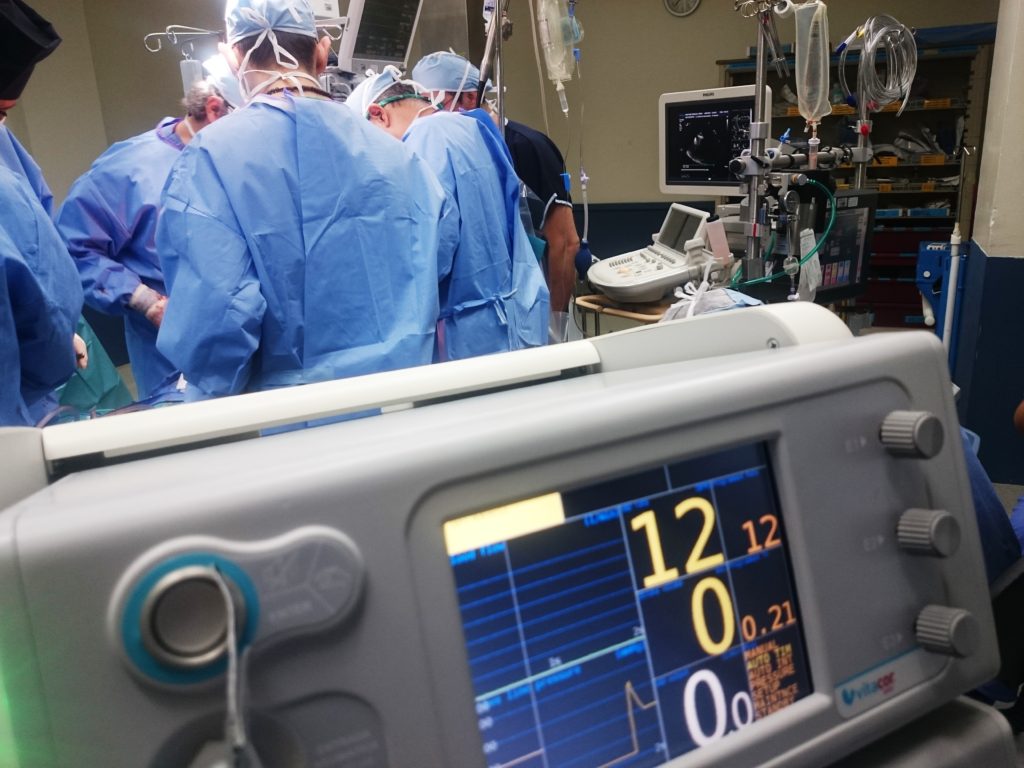Carpal tunnel release surgery is the most common hand surgery performed in the United States. Serious complications are rare but can be life-altering. Because of the low rate of complications, if you suffered a major injury during carpal tunnel release surgery there is a decent chance that it was caused by the negligence of the surgeon rather than just being an accepted and known risk of the procedure. Going through the records, looking at the experience of the surgeon, the physiology of your hand, and the type of injury you suffered all will play a part in whether you have a malpractice case though.
How Does Damage To The Median Nerve Impact The Use Of Your Hand?
The median nerve is one of the main nerves that “supplies” the hand (the remainder are supplied by the ulnar nerve). As a result damage to it can greatly impact the use of your hand. It passes through the carpal tunnel, which is the passageway in the wrist that connects the forearm to the hand. Carpal tunnel syndrome typically occurs when that median nerve gets squeezed or compressed when it passes through the hand.
There are a variety of injuries you can suffer during carpal tunnel surgery. One of the most common is nerve injury, specifically median nerve injury given it is typically the nerve being compressed that leads to the syndrome. According to a 2018 article in the American Association for Hand Surgery, in cases involving surgeon negligence during the procedure, almost half of the suits claiming injury to the median nerve were successful for the plaintiff.
A median nerve injury is not the only injury or complication you can suffer during carpal tunnel surgery. You can also have incomplete decompression of the trapped nerve leading to additional unnecessary procedures, surgery done at the wrong site, or a delay in treatment. You could also suffer a tendon injury (the tissue that connects the muscle and bone) or an arch injury (area in the palm of your hand).
How Does The Experience Of A Surgeon Affect My Negligence Case?
The type of injury is not the only factor in the case. Another factor is the experience of the surgeon and the technique he or she used to perform the surgery. There are two types of techniques in performing carpal tunnel surgery – open carpal tunnel surgery and endoscopic carpal tunnel surgery. Open carpal tunnel surgery cuts open the base of the palm and may require a longer recovery period than endoscopic surgery. Temporary nerve problems may be less likely with open surgery. But painful scar tissue may be more likely to develop after open surgery than after endoscopic surgery. Endoscopic surgery does not involve the opening of your hand. Instead a scope called an endoscope is guided through a small incision in the wrist (single-portal technique) or at the wrist and palm (two-portal technique). During endoscopic carpal tunnel release surgery, the transverse carpal ligament is cut. This releases pressure on the median nerve, relieving carpal tunnel syndrome symptoms.
Endoscopic carpal tunnel surgery is more technical and should be performed by more experienced physicians. A physician that is not very experienced in open carpal tunnel surgery should likely not be attempting endoscopic tunnel surgery. However regardless of the technique, an inexperienced physician attempting to perform surgery over his or her head can be an explanation for surgical negligence.
Besides the above the severity of your injury and a review of your records by attorneys experienced in handling medical malpractice claims will help determine whether you have a case on which you can go forward. Consulting with medical experts experienced in performing these surgeries will also be a major factor in your case. The Thistle Law Firm is experienced at handling these claims. If you or a loved one have suffered a serious injury or ongoing problems following carpal tunnel surgery the attorneys at the Thistle Law Firm are here to take your call at 215-568-6800.


